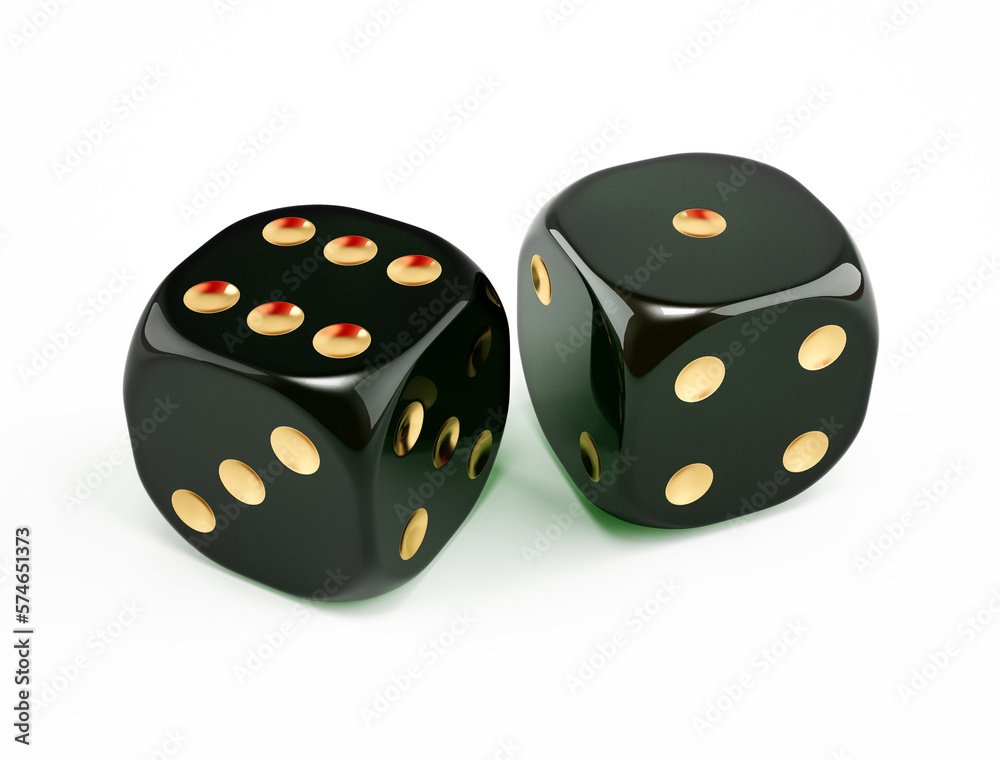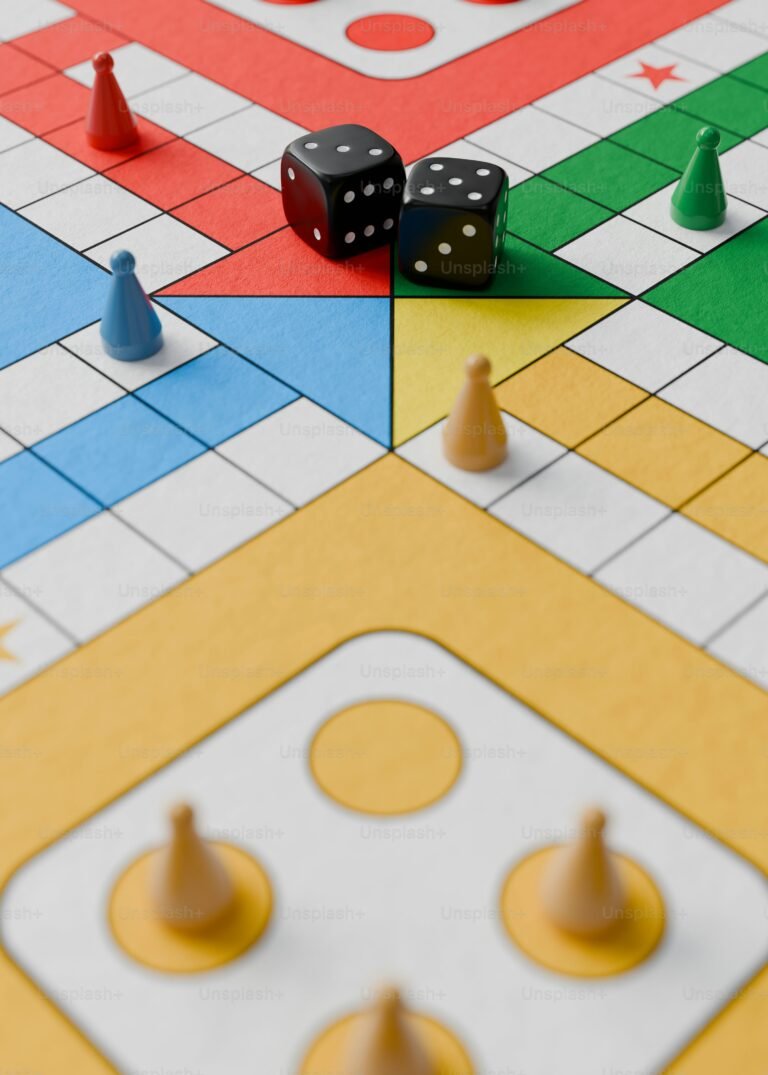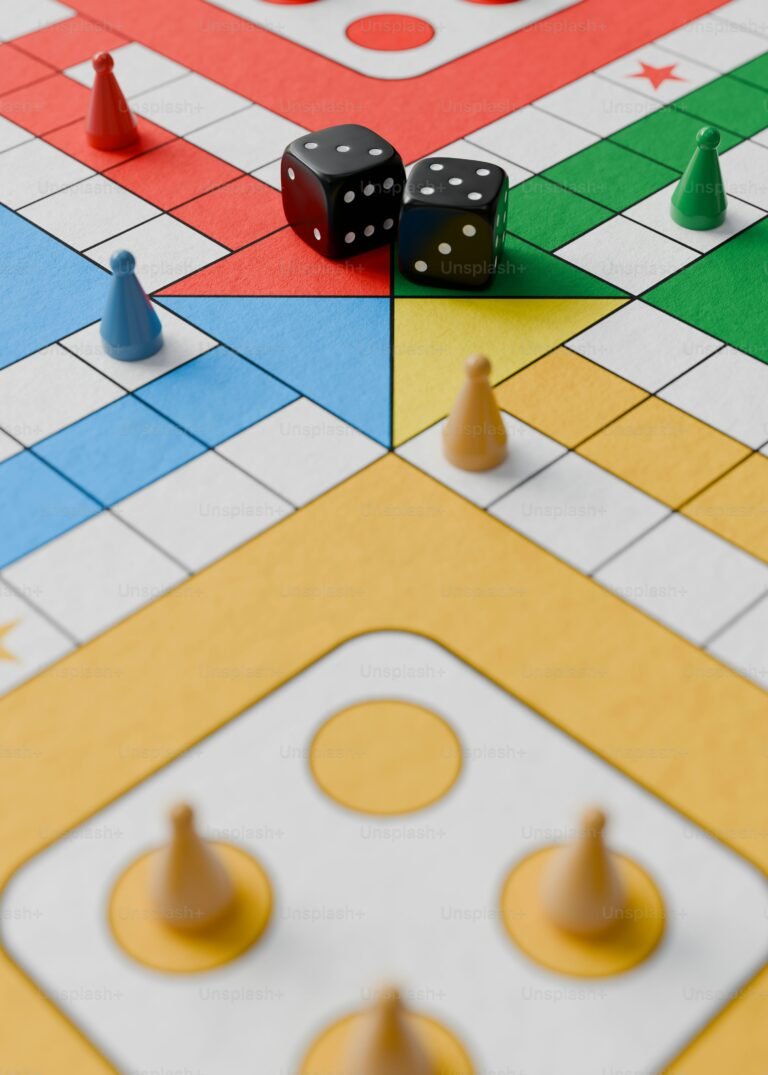
ludo history, a classic board game enjoyed by millions worldwide, has a rich and fascinating history that spans centuries and continents. From its ancient origins in India to its modern-day digital adaptations, the game has evolved while retaining its core charm. In this blog post, we’ll dive deep into ludo history, exploring its origins, transformations, and enduring appeal. Whether you’re a casual player or a Ludo enthusiast, this journey through time will reveal why this game remains a beloved pastime. For an exciting modern take on Ludo, visit Ludo.pk to experience the game in a fresh, engaging way.
The Ancient Beginnings of Ludo History
Origins in Ancient India: The Game of Pachisi
The story of ludo history begins in ancient India with a game called Pachisi, often referred to as the “national game of India.” Dating back to at least the 6th century, Pachisi was played on a cross-shaped board, much like modern Ludo. The name Pachisi comes from the Hindi word pachis, meaning “twenty-five,” which was the highest score achievable with a single throw of cowrie shells used as dice.
Pachisi was more than just a game—it was a cultural phenomenon. Played by royalty and commoners alike, it symbolized strategy, luck, and social bonding. Historical records suggest that Emperor Akbar, the Mughal ruler, was an avid Pachisi player. He even had a life-sized courtyard version of the game, where courtiers acted as pieces, moving across a giant board at his command. This vivid imagery underscores the game’s prominence in Indian culture and marks the earliest chapter in ludo history.
Evolution Across Cultures
As trade routes expanded, Pachisi spread beyond India, influencing games in Persia, the Middle East, and eventually Europe. Each region adapted the game to suit local preferences, but the core mechanics—moving pieces based on dice rolls—remained consistent. By the 19th century, simplified versions of Pachisi began appearing in Europe, laying the groundwork for what we now know as Ludo.
The Birth of Modern Ludo
Ludo’s Emergence in the West
The modern version of Ludo, as we recognize it today, was patented in England in 1896 by Alfred Collier under the name “Ludo,” derived from the Latin word ludus, meaning “game.” This version streamlined Pachisi’s complex rules, making it accessible to a broader audience. The iconic cross-shaped board, divided into four colored quadrants, became a hallmark of the game, along with the use of dice instead of cowrie shells.
Ludo quickly gained popularity in Victorian England as a family-friendly parlor game. Its simple rules and engaging gameplay made it a staple in households, particularly during social gatherings. The game’s portability and universal appeal helped it spread across the British Empire, including back to India, where it ironically became more popular than its ancestor, Pachisi.
Ludo’s Global Spread
By the early 20th century, Ludo had become a global phenomenon. In North America, it inspired similar games like Parcheesi, which retained much of Pachisi’s original flavor. In Europe, variations such as Mensch ärgere dich nicht (Germany) and Non t’arrabbiare (Italy) emerged, each adding local twists to the rules. Despite these variations, the essence of ludo history—a race to move pieces home through strategy and luck—remained unchanged.
For a modern, digital experience of this timeless game, check out Ludo.pk, where you can play Ludo online with friends or challenge players worldwide.
Ludo in the 20th Century: A Family Favorite
Ludo as a Cultural Staple
Throughout the 20th century, Ludo solidified its status as a family favorite. Its simplicity made it accessible to players of all ages, while its competitive nature kept everyone engaged. In many households, Ludo was more than a game—it was a bonding ritual, bringing together grandparents, parents, and children during holidays or rainy afternoons.
The game’s versatility also contributed to its enduring appeal. Whether played on a traditional wooden board or a foldable cardboard version, Ludo adapted to different settings. Its bright colors and tactile pieces appealed to children, while adults enjoyed the strategic depth of blocking opponents or timing their moves.
Ludo’s Role in Education and Socialization
Interestingly, ludo history also intersects with education. Teachers and parents recognized the game’s value in teaching children basic math skills, such as counting and probability, as well as social skills like patience, teamwork, and sportsmanship. In schools and community centers, Ludo became a tool for fostering interaction and cooperation among children.
The Digital Revolution: Ludo in the 21st Century
Ludo Goes Online
The advent of the internet and mobile technology marked a new chapter in ludo history. In the early 2000s, developers began creating digital versions of Ludo, allowing players to enjoy the game on computers and smartphones. These adaptations retained the classic rules but introduced features like online multiplayer modes, customizable boards, and in-game chat, making Ludo more interactive than ever.
Today, platforms like Ludo.pk have taken the game to new heights. With sleek interfaces and seamless gameplay, these platforms allow players to connect with friends or compete against strangers from anywhere in the world. The ability to play Ludo on the go has made it a favorite among busy professionals, students, and families alike.
Ludo’s Role in the Gaming Industry
The rise of mobile gaming has also elevated Ludo’s status in the gaming industry. Unlike complex video games that require significant time and skill, Ludo offers quick, engaging sessions that appeal to casual gamers. Its low learning curve and high replay value have made it a staple in app stores, with millions of downloads worldwide.
Moreover, Ludo’s digital versions often incorporate modern elements like leaderboards, tournaments, and rewards, adding a competitive edge to the traditional game. These innovations have ensured that Ludo remains relevant in an era dominated by high-tech entertainment.
Why Ludo Endures: The Timeless Appeal
A Perfect Blend of Luck and Strategy
One reason for Ludo’s lasting popularity is its unique blend of luck and strategy. While dice rolls determine movement, players must make strategic decisions about which pieces to move, when to block opponents, or when to take risks. This balance keeps every game unpredictable and exciting, ensuring that no two matches are ever the same.
Universal Accessibility
Ludo’s simplicity makes it accessible to players of all backgrounds. Unlike games that require specialized knowledge or equipment, Ludo can be played by anyone with a board, dice, and a few pieces. Its rules are easy to learn, yet the gameplay offers enough depth to keep seasoned players engaged.
A Bridge Across Generations
Perhaps the most remarkable aspect of ludo history is its ability to bridge generations. Grandparents who played Pachisi in their youth can sit down with their grandchildren for a game of Ludo, sharing stories and laughter. In an age of rapid technological change, Ludo’s ability to foster human connection is a testament to its timeless appeal.
Ludo’s Future: What Lies Ahead
As we look to the future, ludo history is far from over. Advances in technology, such as augmented reality (AR) and virtual reality (VR), promise to take Ludo to new dimensions. Imagine playing Ludo on a virtual board that floats in your living room or competing in global tournaments with players projected as holograms. These innovations could redefine how we experience this classic game.
Additionally, Ludo’s cultural significance continues to grow. In countries like Pakistan, where board games are a cherished pastime, platforms like Ludo.pk are keeping the game alive and relevant. By blending tradition with technology, these platforms ensure that Ludo remains a vibrant part of our cultural landscape.
Conclusion: Celebrating Ludo’s Legacy
From its origins as Pachisi in ancient India to its modern incarnations on platforms like Ludo.pk, Ludo has traveled through time, crossing borders and cultures. Its ludo history is a testament to the power of simple, engaging gameplay to bring people together. Whether you’re rolling dice on a wooden board or tapping a screen, Ludo’s charm lies in its ability to create moments of joy, competition, and connection.
So, the next time you gather with friends or family for a game of Ludo, take a moment to appreciate its incredible journey. And if you’re ready to experience Ludo in a new way, head over to Ludo.pk for a fun, modern twist on this timeless classic. Here’s to many more centuries of Ludo!



